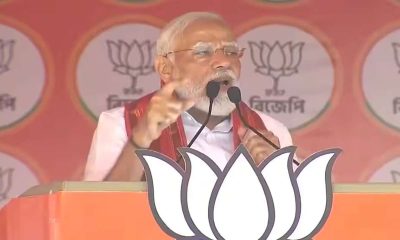India News
Aadhaar linkages case: UIDAI chief likely to make PPT presentation in SC tomorrow
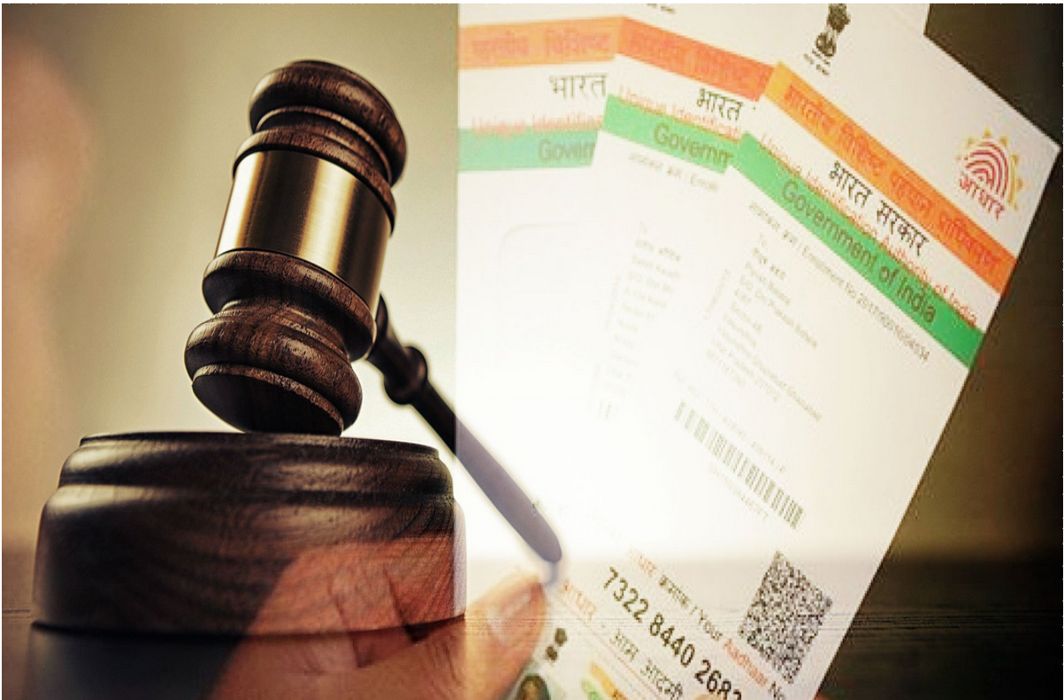
The Constitution Bench of the Supreme Court will, in probably the first such instance, be given a PowerPoint (PPT) presentation, on Thursday, March 22, by Unique Identification Authority of India (UIDAI) CEO Ajay Bhushan Pandey to defend the Aadhaar Act and Centre’s decision of making Aadhaar-linking with various services mandatory.
The Centre on Wednesday, March 21, had sought the Supreme Court’s permission to UIDAI CEO Dr Ajay Bhushan Pandey to give a power point presentation in the court to allay the concerns regarding the Aadhaar act.
The Constitution Bench comprising Chief Justice Dipak Misra and Justices AK Sikri, AM Khanwilkar, DY Chandrachud and Ashok Bhushan, on Wednesday March 21, accepted the request from the Attorney General KK Venugopal.
CJI Dipak Misra, who is heading the five-judge bench hearing a batch of petitions challenging the constitutional validity of Aadhaar, said the time for presentation will be fixed after discussions with other judges.
The UIDAI is the nodal authority that issues the 12-digit biometric identity programme.
Venugopal, who made submissions on behalf of the centre in defence of the Aadhaar programme and Prime Minister Narendra Modi-led government’s insistence of mandatorily linking the system for continued access to various services, including bank accounts and subsidiary benefits, told the top court on Wednesday that “steps have been taken to protect the personal information” of citizens who have been integrated with the biometric system, reported India Legal.
Emphasising that all necessary steps were being taken by the centre and UIDAI to safeguard data integrated with the biometric identification programme, the Attorney General said: “There are two highly technical aspects involved- one, regarding the security of data, in terms of access to the biometric and demographic database; and two, regarding the prevention of leakages in social security schemes… Between 2006 and 2016, 61 committees including Empowered Groups of Ministers and expert groups have deliberated on alternatives to Aadhaar cards such as smart cards etc…the Aadhaar is a serious attempt on the part of the government for insulating people…several countries have adopted similar systems of identification…the World Bank has, in its ‘Identifications for Development’ Integration Approach Study, investigated the various aspects of the Aadhaar regime as well those of other countries…”
Venugopal told the court that, if allowed, the UIDAI chief will address issues related to the security concerns over Aadhaar linkages through a PowerPoint presentation in the courtroom. Urging the bench to consider the request for a PPT presentation, stating that this would reduce the time of the court and will give a better understanding of what is being presented, Venugopal said: “All doubts of the judges and petitioners will be answered by CEO, UIDAI”. He suggested that two screens be put up in the court to enable the five judges as well as the petitioners to track the pointers being made in the PPT presentation.
The bench then said that it would consider the Attorney General’s request while Chief Justice Misra asked him to proceed with his submissions in the meanwhile.
Before the Attorney General began making his oral submissions, Chief Justice Misra succinctly summarised the legal arguments advanced by the petitioners over the 19 days of the Aadhaar hearing, stating that these ranged from assertions like – “I love my anonymity”, “my privacy is my treasure, why should I sell it”, “concerns over virtual mass surveillance”, etc.
Venugopal then began his arguments, basing them on the premise that Aadhaar was an effort by the government to “protect the segmented sections of society”.
“During the British-era, the rate of poverty (in India) was 66 per cent and that of illiteracy was 87 per cent…while the population between 1947-1950 was only 300 million… there were instances galore of diversion of funds by middlemen and public servants…corruption was massive”, adding that as per the report of Privacy International, India was ranked high in terms of corruption,” Venugopal said, adding: “now both (poverty and illiteracy) are both at 27 per cent.”
He said that the Aadhaar (Targeted Deliveries of Financial and Other Subsidies, Benefits and Services) Act of 2016 “was so designed that it has the lowest level of data leakage” and that there has been “no violation of the fundamental rights of people under Article 21 between 2009 and 2016 (the period during which mandatory linking was not incorporated into law but citizens voluntarily shared their biometric details for Aadhaar) because we’ve submitted ourselves voluntarily to the scheme.”
“We cannot say that because of our own voluntary acts, our fundamental rights have been violated,” Venugopal said. Drawing on the interpretation of “right to life” and the importance of this right vis-a-vis Aadhaar (since the government wants citizens to link their various services with the biometric identifier), the Attorney General said: “right to life under Article 21 has been interpreted as meaning not mere animal existence, but a life with dignity, including rights to food, shelter, employment etc.”
Justice Sikri then intervened to say: “Petitioners have raised the argument of their right to dignity while the respondents have argued their right to human dignity… the DPSPs (directive principles of state policy) require the State to safeguard and uplift the marginalised sections; there is also the right to dignity and privacy of the others. If any individual’s right to privacy is infringed, it comes in the zone of reasonable measures.”
To this, Chief Justice Misra added: “The right to privacy of an individual may be violated only as a reasonable measure, not to give way to distributive justice.”
Seeking to counter submissions made by petitioners who had argued that several poor citizens had been denied food and rations – some even reported dead of starvation – for want of Aadhaar-linking with ration cards to glitches in the biometric system, Venugopal said: “We have not received any such complaints where privacy has been infringed… Several NGOs have filed petitions, but Your Lordships have not heard a single depraved person complaining… in respect of the case of the woman who died for the want of Aadhaar, we have a counter…”
The Attorney General said further: “fundamental right has two aspects – one, the right to privacy, which is being used to challenge Section 7 of the Aadhaar Act, and two, the right to physical existence without hunger and without having to live on the pavement… in case of a conflict between the two, the latter ought to prevail… benefits to 300 million people have been given under Section 7 of the Act. There is no question of violation of fundamental rights.”
Justice Chandrachud posed the pointer: “There is no antithesis between political guarantees and economic guarantees. It is not like that there shall be the right to privacy for one section of the society and economic rights for the other. Until 2016 (when the Aadhaar Act was enacted), whosoever volunteered under the Aadhaar scheme, was basically not protected by any law as the legal protection was provided only under the act”.
Venugopal then proceeded to argue that the “Object of this act is to give directed delivery of subsidies to poor people of India as also given under the DPSPs so as to bridge a gap between rich and poor.” He read out from the written submissions regarding the objective of the Aadhaar Act – “The State is using the Aadhaar as an enabler of the right to food, livelihood, pension and other social welfare schemes including scholarships, while the petitioners are attacking the project on the grounds of privacy… in the past, the identity of the beneficiaries has failed the implementation of these welfare programmes, particularly in respect of the old and the disabled…”
Justice Sikri asked the Attorney General to explain his submission about implementation of welfare programmes failing due to creation of identities. “How can a condition of fake identity arise… under the pension scheme, it is the right of the employee to be subject to pension after rendering certain services,” Justice Sikri said.
Venugopal conceded that that “a lot of bogus identifications have been reported”.
Justice Chandrachud then asked the Attorney General to respond to concerns raised by petitioners who have sought to know from the government the state that mandatory Aadhaar-linking would leave such individuals in who suffer from dementia, or whose fingerprints can’t be recorded in the biometric system due to disability or other physical factors. “Take an example of people suffering from Alzheimer’s or dementia, people aged 80 or 90 years, or those who don’t have fingerprints… where do they go? Which bank will they go to? How can they have Aadhaar?”, Justice Chandrachud asked.
“You have to ensure that people should not suffer,” Justice Chandrachud said, adding: “How do we construe the meaning of subsidy, benefit of service under Section 7 of the Act… It would be better if the government accepts there is a problem of financial inclusion.” He then pointed out in a matter of fact manner: “A scheme always has good points as well as bad points.”
Venugopal responded with a quote from Mahatma Gandhi, stating: “The world has enough for everyone’s need but not for everyone’s greed” while referring to the problem of poverty in India and said: “poverty is unfortunate, the mere idea of poverty is violates human rights…”
The Attorney General then said that in genuine cases where an individual’s biometric was not being recognised for any reason, “beneficiaries will be provided with the subsidies via alternative mediums… if biometric is not being recognised, the individual will still get the subsidy on the basis of possession of the Aadhaar card.”
Justice Sikri then asked the Attorney General what is the purpose and need of centralising all data, adding: “even if we accept all your arguments, the chances of abuse of data remain.”
The bench then adjourned the matter until Thursday.
2024 Lok Sabha Elections
PM Modi says Congress leaders consider themselves above Lord Ram
PM Modi slammed Congress during a rally in Chhattisgarh, ahead of the Lok Sabha elections 2024
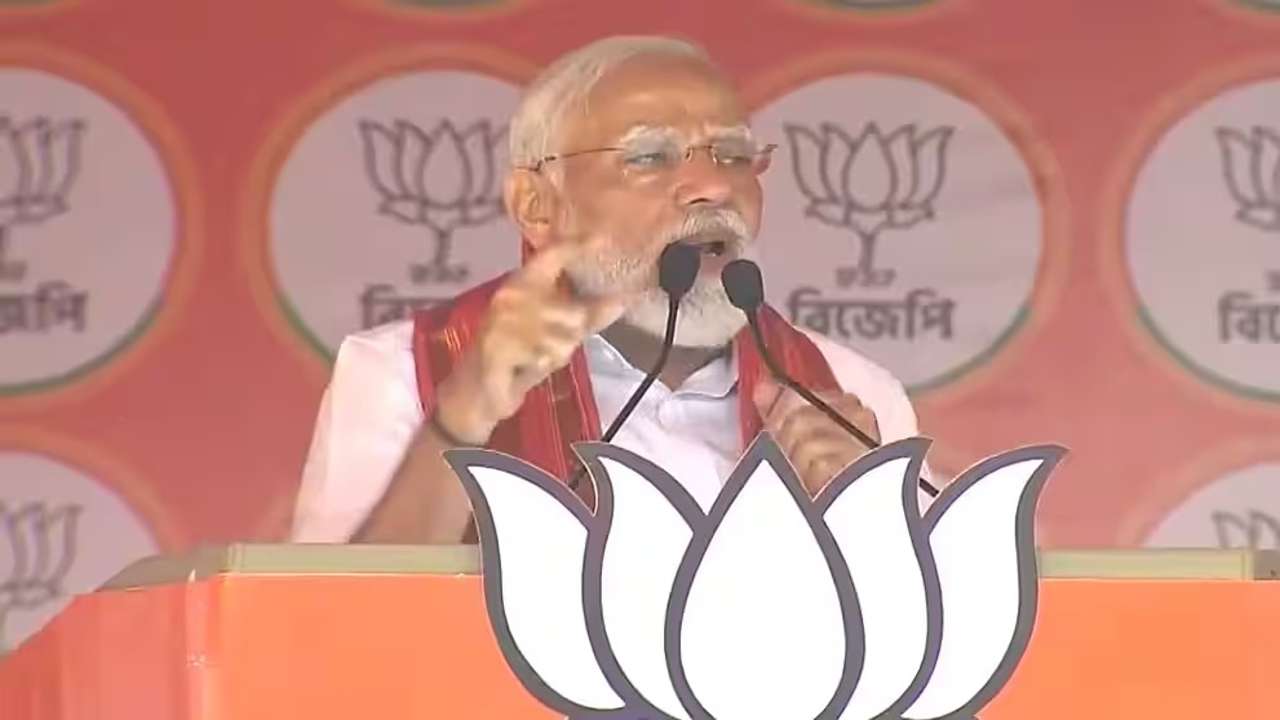
Prime Minister Narendra Modi slammed the Congress party for declining to attend the pran pratishtha ritual at the Ayodhya Ram temple on January 22 this year.
The prime minister said Congress leaders consider themselves above Lord Ram and denied invitation for Pran Pratishtha at Ram Temple, while speaking at a rally in Janjgir-Champa, Chhattisgarh. The PM question the people present at the rally that is it not a disrespect of Mata Shabri? Congress leaders inclination toward appeasement politics runs in their family.
For political appeasement, they won’t think twice about stealing the rights of Adivasis, the poor, and Dalits. Poor, young, and women are BJP’s top priorities, Modi said.
PM Modi criticized the Congress again during the rally for claiming that the BJP would alter the constitution.
The leaders of Congress recite the same old phrases whenever an election is about to happen, the PM said. He also said they claim that if the BJP wins power, it will renounce the constitution and abolish reservations. For how long will you continue selling lies?” he asked.
The prime minister continued saying that nobody can change the Constitution, even if Dr. Babasaheb Ambedkar were to come and insist on it, it wouldn’t happen.
Those in the Congress threaten to break Modi’s head. Nobody can harm Modi as long as the mothers and sisters of this county stands by him. These mothers and sisters are Raksha Kavach, Modi remarked.
The prime minister further attacked the Congress after Viriato Fernandes, the party’s candidate for South Goa, asserted that Goa was forced to adopt the Indian Constitution.
Referring to his conversation with Congress leader Rahul Gandhi ahead of the 2019 Lok Sabha elections, Fernandes said he had told him, when Goa was liberated in the year 1961, the Indian Constitution was forced upon us.
The prime minister said, Congress candidate from Goa says Constitution was forced upon Goans; is this not an insult of Ambedkar and Constitution.
2024 Lok Sabha Elections
Amit Shah says neither Congress nor Trinamool chief Mamata Banerjee can interfere with CAA
Amit Shah revealed the BJP’s target for West Bengal and said they have set a target of winning 35 Lok Sabha seats from West Bengal.
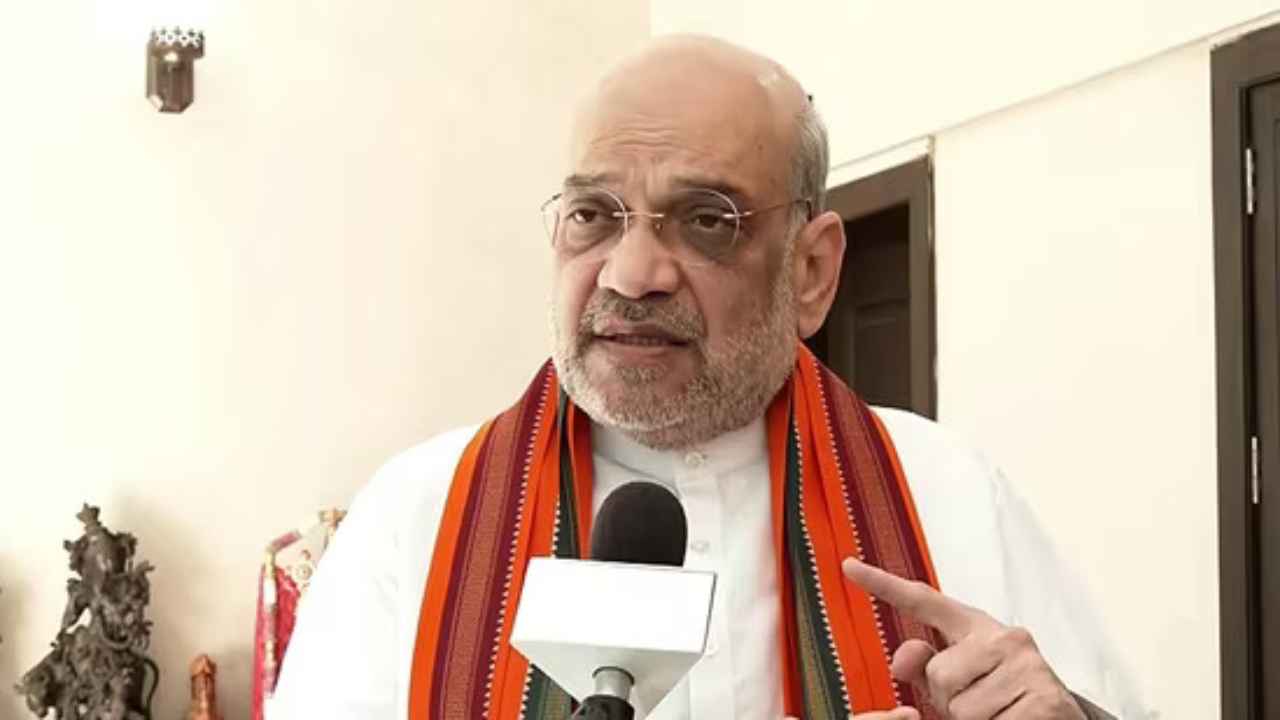
Union home minister Amit Shah on Tuesday said neither Congress nor Trinamool Congress chief Mamata Banerjee can interfere with the Citizenship Amendment Act (CAA). He was speaking at the Karandighi rally in West Bengal where he also made the prediction as to how many seats BJP will win in the Lok Sabha elections in West Bengal.
The union home minister asked the masses to cut the money culture. Amit Shah revealed the BJP’s target for West Bengal and said they have set a target of winning 35 Lok Sabha seats from West Bengal. In 2019 Lok Sabha elections the BJP had won 18 out of 42 seats in West Bengal. He asked Mamata Banerjee, what problem will she have if the Buddhist and Hindu refugees from Bangladesh get citizenship in India?
Shah further added if the people of West Bengal want to stop infiltration in the state, then they will have to make Narendra Modi the Prime Minister of India again. He said if the people of West Bengal want to free Bengal of violence, stop infiltration in the state, give citizenship to refugees, to stop disrespecting mothers and sisters of the state as it happened in Sandeshkhali, then only way is to make Narendra Modi the Prime Minister.
Amit Shah said that PM Modi had sent Rs 7 lakh crore to West Bengal but the TMC indulged in corruption. He said one can see the houses of Trinamool Congress leaders; 10 years ago they used to live in a hut, moved on cycle and now all of them have 4-storey houses and move around in big cars. He added this is the money of people of West Bengal.
The Citizenship Amendment Act (CAA), will make it easier for non-Muslim refugees from Afghanistan, Pakistan and Bangladesh to get Indian citizenship, was enacted in 2019. But the rules were notified in March this year by the Centre.
2024 Lok Sabha Elections
Prime Minister Narendra Modi says listening to Hanuman Chalisa under Congress rule is a crime
PM Modi was addressing an election rally in Rajasthan’s Tonk-Sawai Madhopur, on a day as India celebrates Hanuman Jayanti.
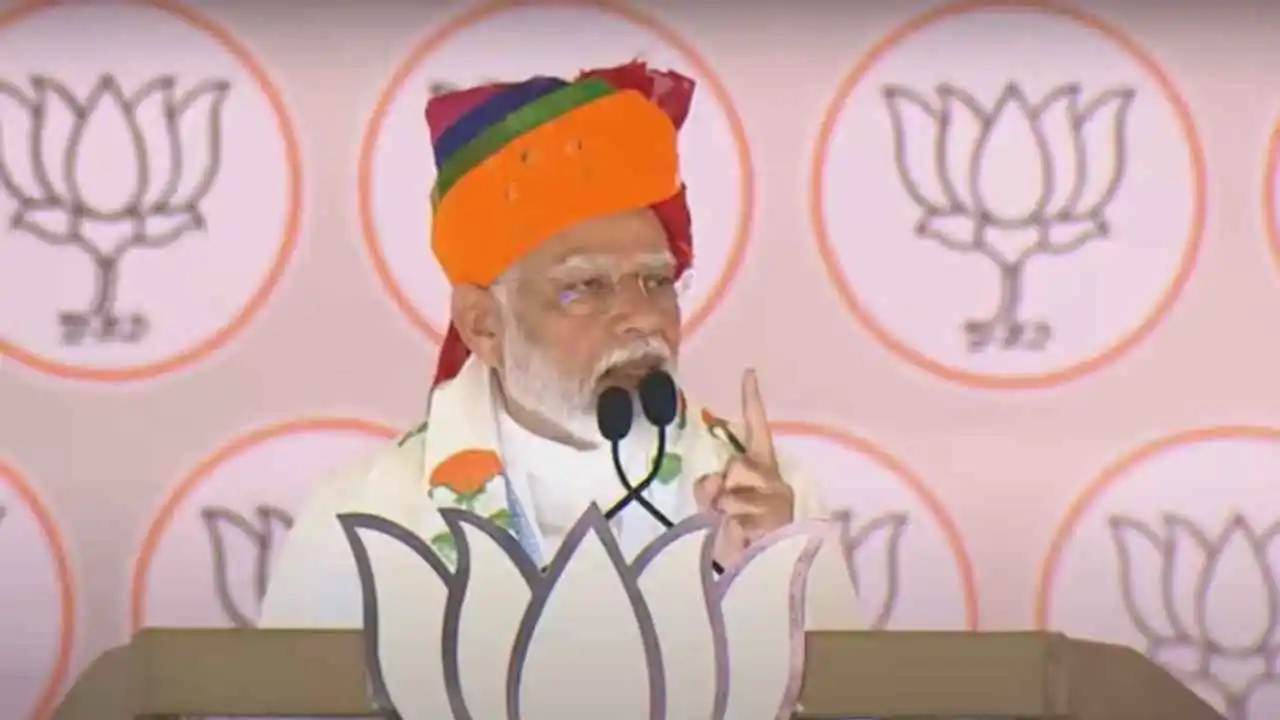
Prime Minister Narendra Modi on Tuesday hit out at the Congress and said even listening to Hanuman Chalisa has become a crime under the party’s rule. The Prime Minister also said it was difficult to follow one’s faith under the party and accused it of hatching a deep conspiracy to snatch people’s wealth and distribute it among selected few people in the society. PM Modi was addressing an election rally in Rajasthan’s Tonk-Sawai Madhopur, on a day as India celebrates Hanuman Jayanti.
PM Modi said in a state like Rajasthan where people chant Ram-Ram, Congress banned Ram Navami. He reffered to the redistribution of wealth remarks he had made during a rally in Rajasthan’s Banswara on Sunday and said it has angered the Congress and INDI Alliance so much that they have started throwing abuses at Modi everywhere.
The Prime Minister said that Congress has written in their manifesto that they will survey the wealth. He said the Congress leadership had said in a speech that an X-ray of wealth will be done. He added when Modi exposed the secret then the hidden agenda came out and this has left the people trembling. PM Modi further added that the Congress party has played with the Constitution of the India.
He said when the Constitution was drafted, reservations based on religion were opposed, so that Scheduled Casts (SC), Scheduled Tribes (ST) and Other Backward Classes (OBC) could get protection. He said former Prime Minister Dr Manmohan Singh had said that Muslims have the first right to the country’s resources. The prime minister further added Congress’s ideology has always been of appeasement and vote bank politics. He said stones would still be pelted in Jammu and Kashmir, and enemies would still be cutting off the heads of India’s soldiers had Congress been in power.
-
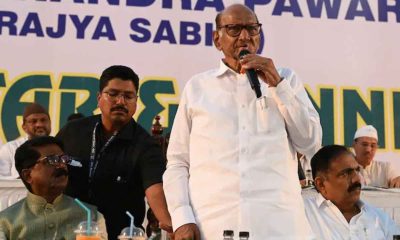
 2024 Lok Sabha Elections10 hours ago
2024 Lok Sabha Elections10 hours agoNCP (SP) leader Sharad Pawar says Prime Minister Narendra Modi is trying to create fear like Russian President Vladimir Putin
-
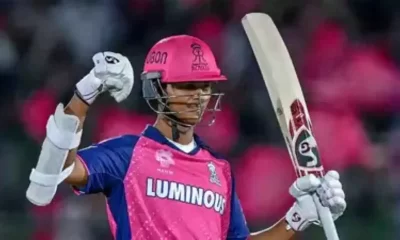
 Cricket news11 hours ago
Cricket news11 hours agoIPL 2024: Yashasvi Jaiswal hits brilliant century to help Rajasthan Royals beat Mumbai Indians by 9 wickets
-
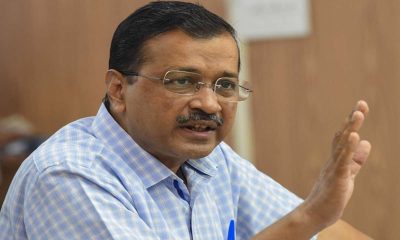
 India News12 hours ago
India News12 hours agoArvind Kejriwal given insulin in Tihar jail after sugar levels touch 320
-
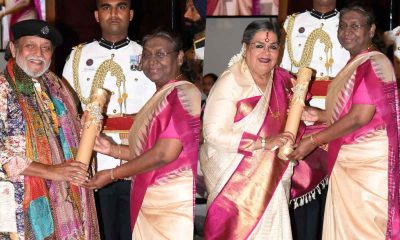
 Entertainment10 hours ago
Entertainment10 hours agoMithun Chakraborty, Usha Uthup honoured with Padma Bhushan
-
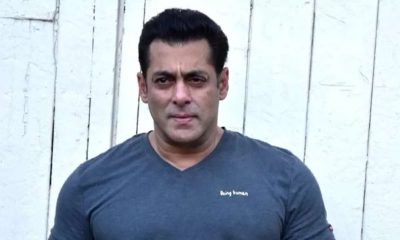
 India News11 hours ago
India News11 hours agoSalman Khan house firing case: Mumbai crime branch recovers gun, cartridges from Tapi River in Surat
-
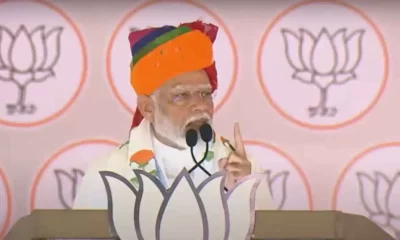
 2024 Lok Sabha Elections9 hours ago
2024 Lok Sabha Elections9 hours agoPrime Minister Narendra Modi says listening to Hanuman Chalisa under Congress rule is a crime
-

 Entertainment8 hours ago
Entertainment8 hours agoFan jumps on stage and hugs Atif Aslam during concert, video goes viral
-
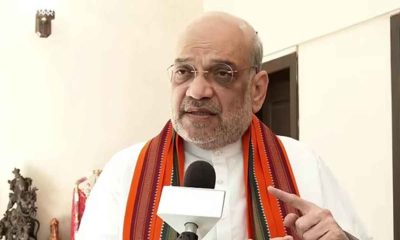
 2024 Lok Sabha Elections6 hours ago
2024 Lok Sabha Elections6 hours agoAmit Shah says neither Congress nor Trinamool chief Mamata Banerjee can interfere with CAA







